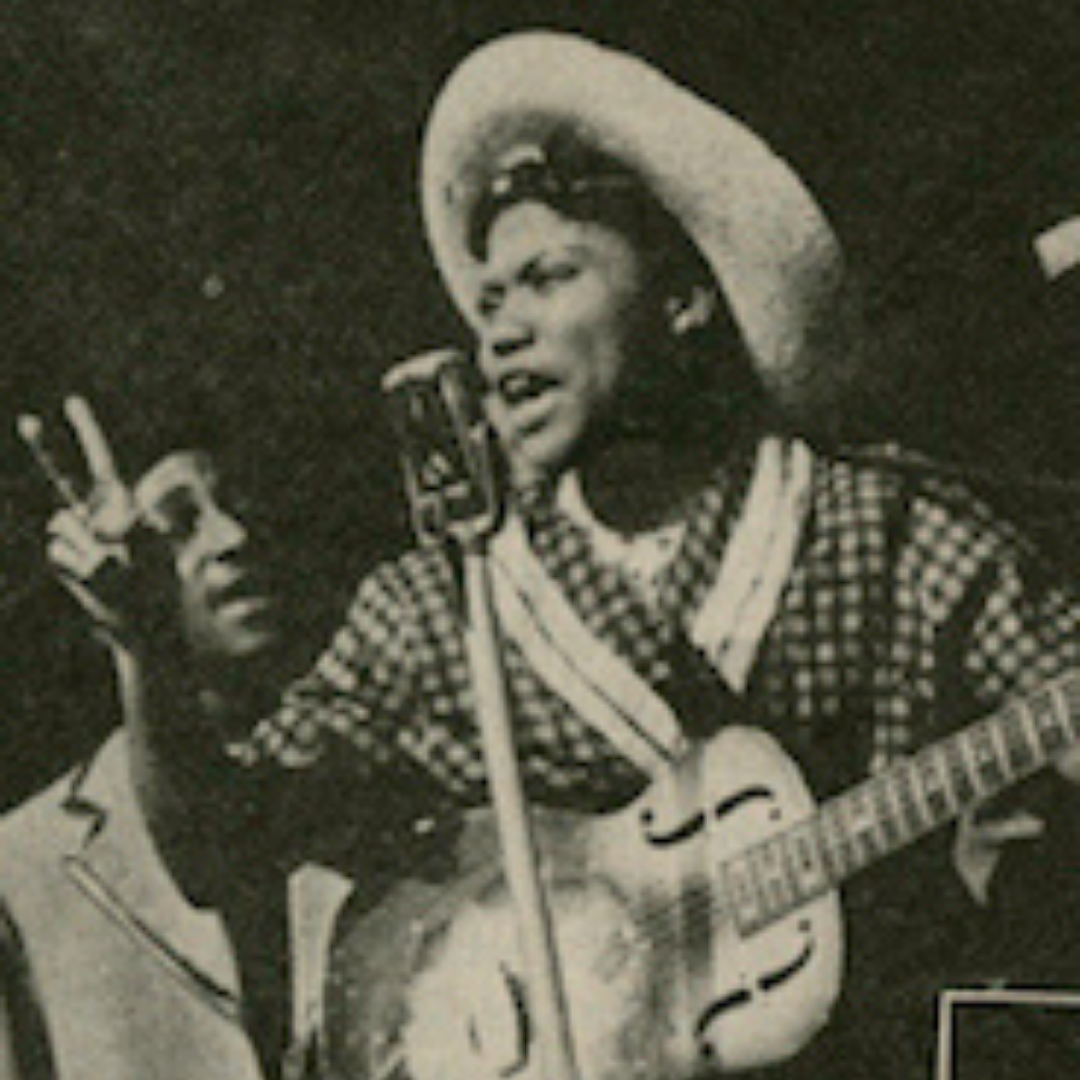In honor of Black History Month, Blue Élan has decided to highlight the careers and legacies of some of music’s most influential musicians and landmarks
 Sister Rosetta Tharpe
Sister Rosetta Tharpe
We're kicking off Black History Month with a celebration of "The Godmother of rock and roll”, Sister Rosetta Tharpe! Sister Rosetta Tharpe’s originality played a pivotal role in the conception of Rock & Roll as a genre of music and earned herself the honorific title. Inducted into the Rock and Roll Hall of Fame in 2018, the guitar-playing, gospel-singing sensation paved the way for Elvis, and influenced everyone from Miranda Lambert to Bob Dylan. “A queer black woman from Arkansas who shredded on electric guitar, belted praises both to God and secular pleasures, and broke the color line touring with white singers, she was gospel’s first superstar, and she most assuredly rocked.” – Rolling Stone
[mk_divider style="single" divider_color="#dddddd" divider_width="full_width" margin_top="20" margin_bottom="20"]
 Charley Pride
Charley Pride
Charley Pride, a pioneering black country singer known for his hits “Kiss an Angel Good Mornin'” and “Is Anybody Goin’ to San Antone,” became one of the first black men to become a major star in a genre where most of the biggest hit-makers are white. Pride is the very first (and so far last) black artist to win the Country Music Association's most prestigious award, Entertainer of the Year in 1971, among many other honors. Rising to prominence in the 1960s and '70s, Pride had at least 30 No. 1 hits on the country music charts and won nearly every major award available to a country musician. In 2000, he was the first black inductee at the Country Music Hall of Fame.
[mk_divider style="single" divider_color="#dddddd" divider_width="full_width" margin_top="20" margin_bottom="20"]
 Gertrude “Ma” Rainey
Gertrude “Ma” Rainey
Gertrude “Ma” Rainey was “The Mother of Blues”. Born Gertrude Pridgett in the South under Jim Crow laws, Rainey proudly proclaimed her bisexuality and helped to mainstream black female narratives in a musical style that later became a nationwide craze. Rainey developed a reputation for her energizing, straight-talking performances and full-throated vocals and was one of the first black artists to record for white-owned record labels. She was an LGBTQ pioneer, openly dating women and cross-dressing in her performances in early-1900s America as Black people were trying to define what freedom would look like for new generations post-slavery.
[mk_divider style="single" divider_color="#dddddd" divider_width="full_width" margin_top="20" margin_bottom="20"]
 The Apollo Theater
The Apollo Theater
The Apollo Theater, originally opened in 1913, was purchased by Sydney S. Cohen and Morris Sussman in 1932 and reopened as a black-oriented theatre, a cultural and musical mecca in the heart of the Harlem neighborhood in NYC. Since then, the Apollo has played a major role in the emergence of jazz, swing, bebop, R&B, gospel, blues, and soul. Ella Fitzgerald, Sarah Vaughan, Billie Holiday, Sammy Davis Jr., James Brown, Gladys Knight, Luther Vandross, D’Angelo, Lauryn Hill, and countless others began their road to stardom on the Apollo stage. After Sydney Cohen’s death, Frank Schiffman, owner of the Harlem Opera House, became Sussman’s partner. With that partnership, the Opera House and the Apollo merged to become for many years the only New York City Theatre to hire black entertainers. The Apollo Theatre in Harlem, New York is the most famous performance venue associated with African American entertainers.
Stay tuned all month to learn more about the countless black artists who have single handedly created, inspired and influenced the music we listen to today.
Happy Black History Month!
 Sister Rosetta Tharpe
Sister Rosetta Tharpe Charley Pride
Charley Pride Gertrude “Ma” Rainey
Gertrude “Ma” Rainey The Apollo Theater
The Apollo Theater